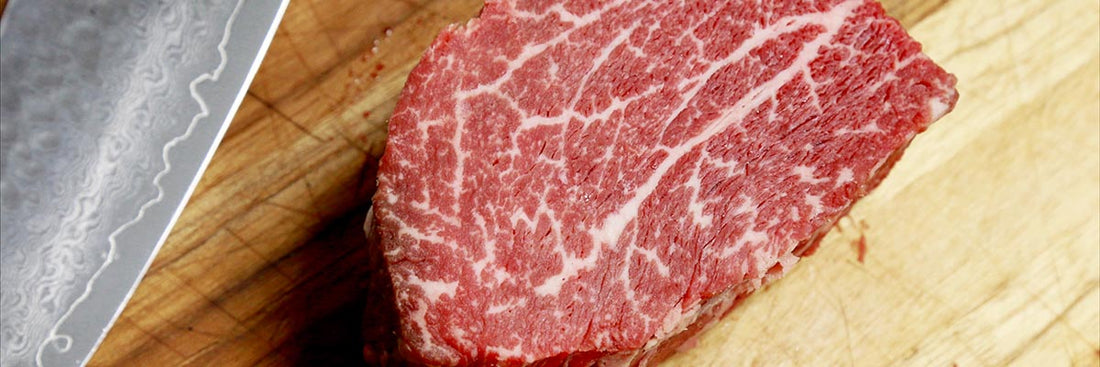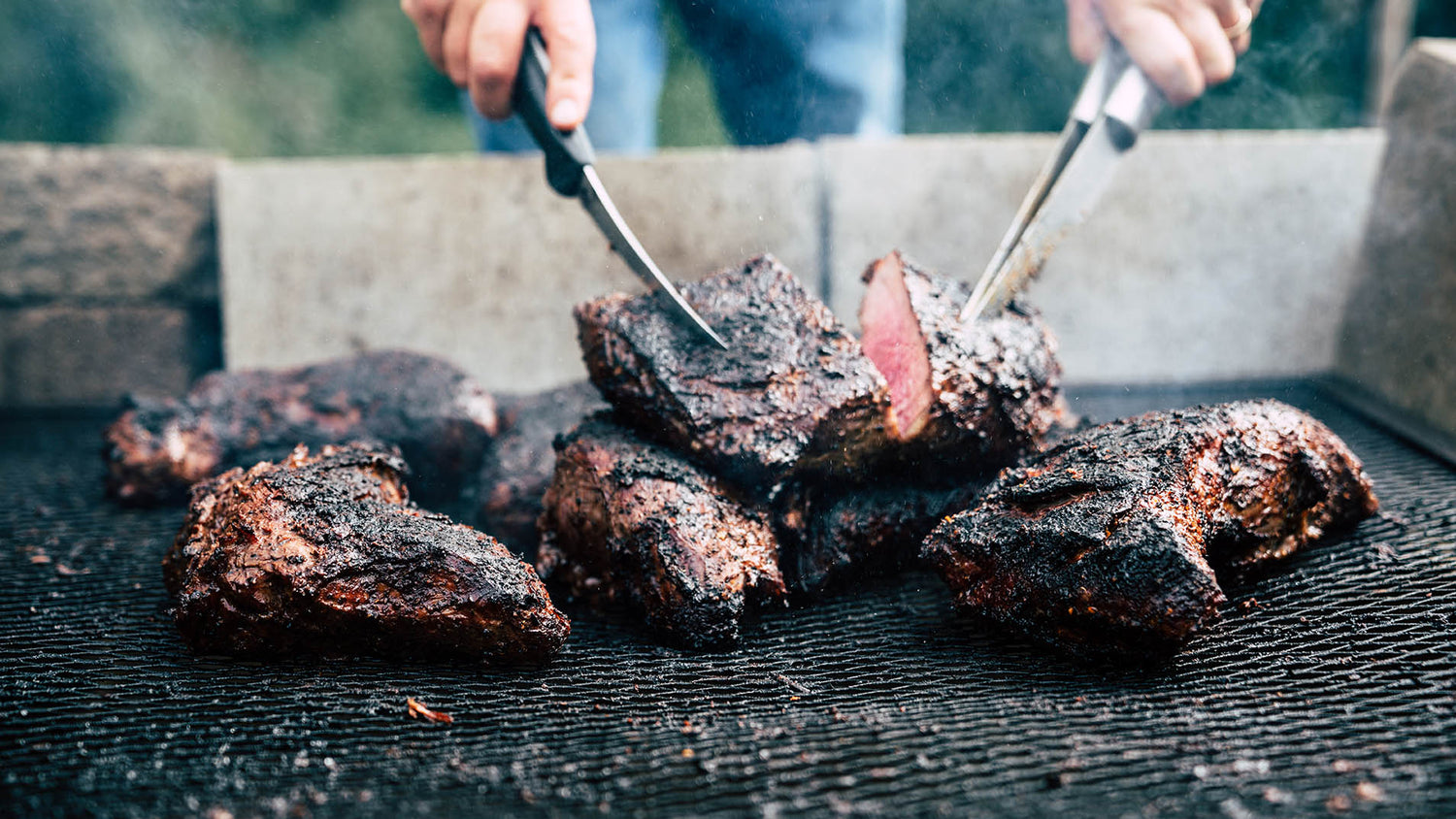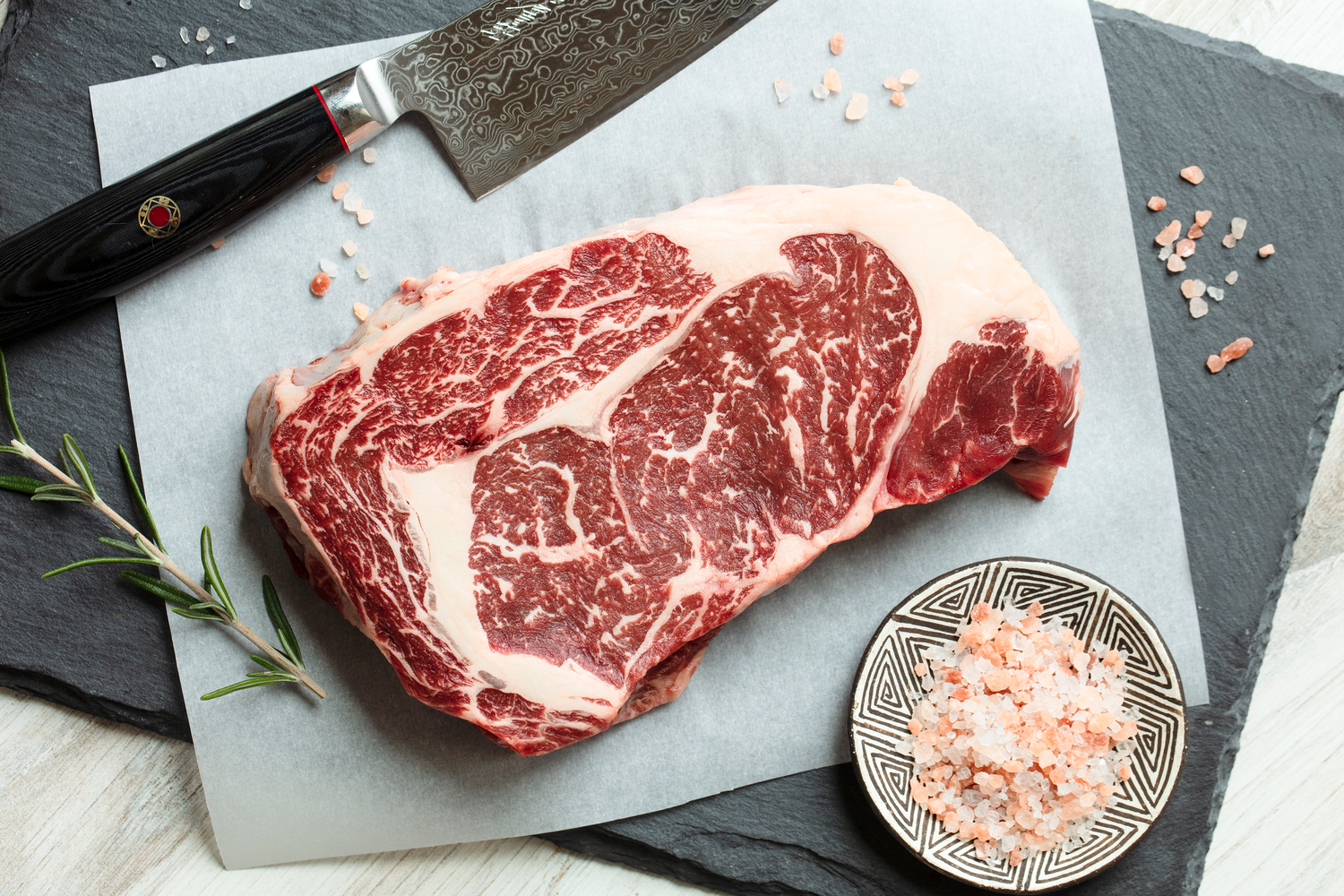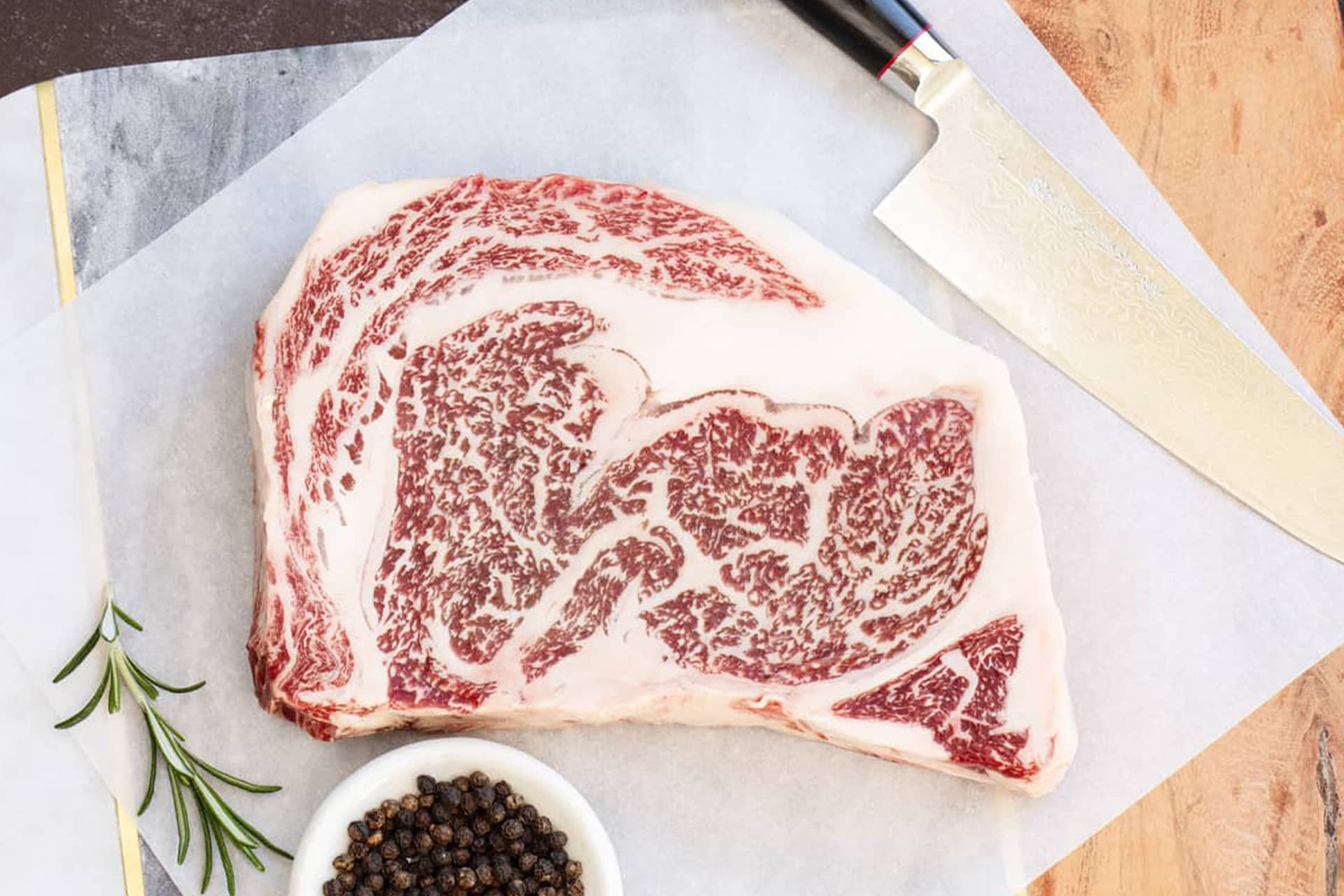
Wagyu Beef 101: Everything You Need to Know About the World's Finest Beef
Share
The History of Wagyu Beef
Wagyu beef originated in Japan during the Edo period (1603–1867). During this time, farmers began raising cattle with a particular focus on breeding them for meat rather than milk production. These cows were fed a diet of grasses and grains and were allowed to roam freely. This method of farming resulted in a breed of cow that had a very low-fat content and produced leaner cuts of meat.
You can read more about Wagyu genetics and it's history in our article What is Wagyu Beef?
Why Wagyu Is So Special
Today, only a small number of farms produce wagyu beef. Even fewer in the United States. The Japanese government actually recognizes wagyu as one of the country’s top agricultural products.
The meat from this breed of cattle has been selectively bred for centuries to create a leaner, higher-quality product. In fact, the fat content of wagyu beef is primarily intramuscular fat and unsaturated compared to beef from other breeds. Because of this, the meat is extremely tender and flavorful.
How to Cook Wagyu Beef
Wagyu beef is very different from other cuts of beef because it is raised with special care. It is fed a diet rich in protein and fat, and it is given access to grassland. This allows the cow to eat natural foods and develop a unique taste.
The meat has a higher fat content than other types of beef, which makes it tender and flavorful. It's also very lean, making it easy to cook.
To prepare, you can start simply by setting out your thawed steak until it reaches room temp, usually about 45 minutes, season it with salt and pepper or your go-to steak seasoning, and grill until the internal temp reaches 140-145 for medium(which is the only way you should eat a steak). Let it rest for about 5 minutes before cutting. Enjoy!
Wagyu steak is great simply prepared but if you're feeling creative you can marinate the steak in soy sauce, sake, mirin (sweet rice wine), sugar, and sesame oil for up to 24 hours before cooking. You can also use a dry rub instead of marinating the meat.
We have more tips over on our Tips on Handling and Cooking your Wagyu post.



